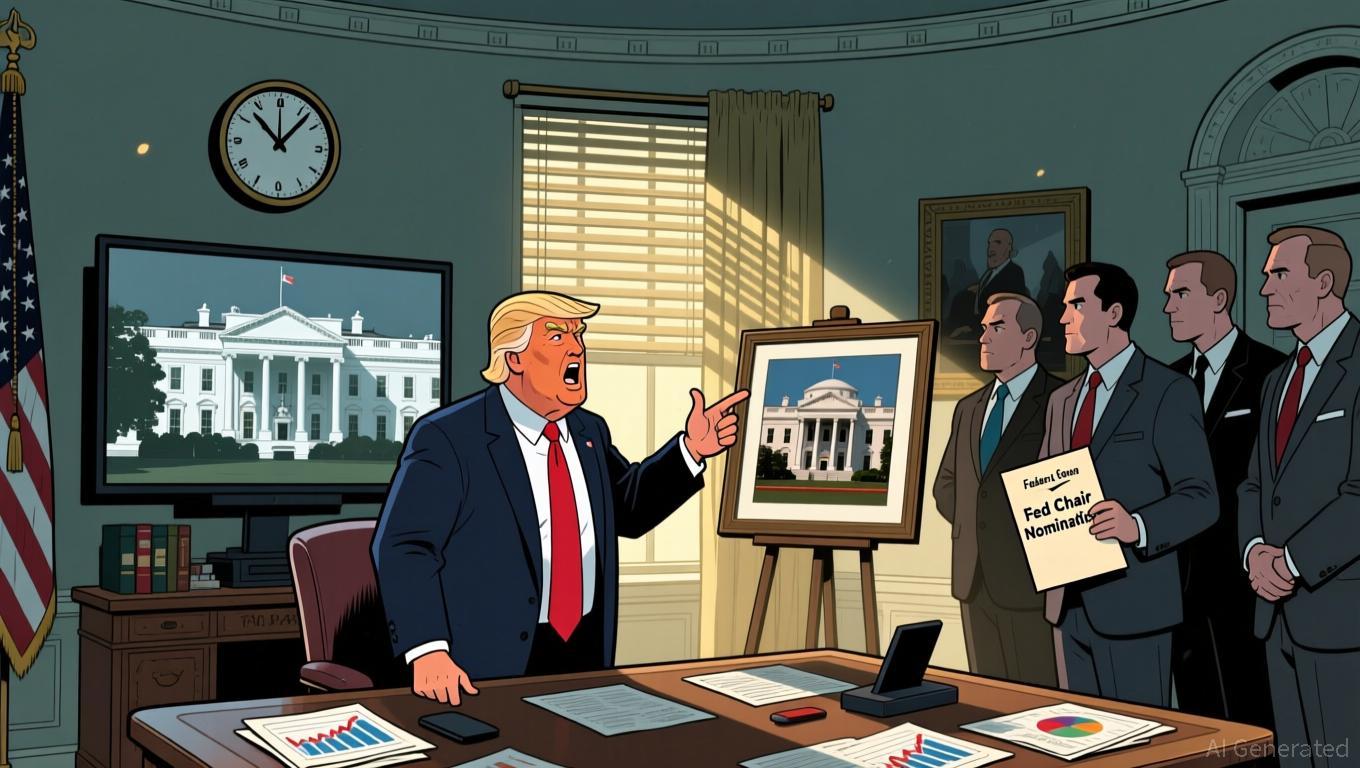Gundlach Cautions That Inflated Markets and Unstable Loans Could Trigger a Financial Crisis
- Jeffrey Gundlach warns U.S. equity market is "least healthy" and predicts private credit crisis due to "garbage loans" and weak underwriting. - He advises 20% cash allocation, reduced AI/data-center speculation, and compares private credit growth to 2006 subprime crisis, citing recent firm failures. - Recommends rebalancing portfolios: 40% global equities, 25% non-dollar bonds, and 15% gold as hedge amid dollar weakness and inflation. - Criticizes AI mania as "dot-com bubble" repeat, with NYU's Damodaran
Jeffrey Gundlach, often referred to as the "bond king" and serving as CEO of
Gundlach's criticism is not limited to the stock market. He compared the explosive expansion of the $1.7 trillion private credit sector to the subprime mortgage bubble of 2006,
Despite his pessimistic view, Gundlach hasn't dismissed all investment options. He continues to regard gold as a "genuine asset class," but

His skepticism toward AI mirrors past episodes of market euphoria, like the dot-com boom. "Markets tend to overreact and overprice major changes," Gundlach observed,
The bond king's remarks come as market volatility increases. The S&P 500 has dropped 1.45% over the last month, and
Disclaimer: The content of this article solely reflects the author's opinion and does not represent the platform in any capacity. This article is not intended to serve as a reference for making investment decisions.
You may also like
Trump Faces a Fed Chair Conundrum: Swift Rate Reductions or Maintaining Trust?
- Trump pledges to replace Fed Chair Powell by Christmas, but prediction markets assign 44% chance of delay into 2026. - Shortlisted candidates (Bessent, Hassett, Waller, Bowman, Rieder) all favor faster rate cuts, contrasting Powell's cautious approach. - Market skepticism grows as Trump privately complains about selection delays, despite public confidence in removing Powell. - Next Fed chair must balance Trump's demand for aggressive rate cuts with maintaining central bank credibility and market trust.

Brazil's Plan to Tax Cryptocurrency Ignites Debate Over Regulation and Investor Protections
- Brazil plans to tax cross-border crypto transfers via IOF expansion, targeting $30B annual revenue loss from unregulated stablecoin flows by 2025. - Stablecoins like USDT , dominating 2/3 of Brazil's crypto volume, face stricter forex rules amid concerns over money laundering and informal currency exchange. - Lawmakers clash over crypto policies: one bill seeks tax exemptions for long-term investors, while another proposes court powers to confiscate crypto linked to cybercrime. - The government's dual st

Bitcoin Updates: UAE’s Holdings in Bitcoin Triple as the Gulf Region Adopts Digital Gold
- Abu Dhabi's ADIC and Mubadala acquired 16M shares in BlackRock's IBIT ETF, tripling ADIC's stake to $518M, positioning UAE as a top Bitcoin holder via ETFs. - The investment occurred before a 20% Bitcoin price drop, with ADIC emphasizing Bitcoin's role as a "digital gold" for portfolio diversification. - UAE's strategy aligns with Gulf trends, including Dubai's Digital Dirham and Saudi Arabia's blockchain partnerships, as sovereign funds increasingly allocate to crypto assets. - Despite institutional int

Evaluating the Drivers and Reliability Behind PENGU’s Recent Rapid Price Increases
- PENGU's 12.8% 24-hour surge to $0.016 is driven by Bitcoin's rebound and NFT ecosystem liquidity spikes. - Proposed PENGU ETF combining tokens with NFTs could attract institutional capital amid 2025 regulatory clarity trends. - On-chain data reveals diverging signals: price gains vs. 33% retracement, bearish MACD, and increased exchange outflows. - Niche tokens like PENGU face liquidity risks despite macro optimism , with $202M 24-hour volume far below major ETF benchmarks. - Sustained PENGU growth requi